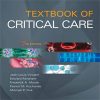Anaphylatoxin C5a Impairs Phagocytosis by Neutrophils
ashpublications.orgThis study provides new insight into the mechanisms underlying immunocompromise in critical illness and suggests novel avenues for therapy and prevention of nosocomial infection. Critically ill patients are at heightened risk for nosocomial infections. The anaphylatoxin C5a impairs phagocytosis by neutrophils. However, the mechanisms by which this occurs and the relevance for acquisition of nosocomial infection remain undetermined.
In healthy human neutrophils, C5a significantly inhibited RhoA activation, preventing actin polymerization and phagocytosis.
RhoA inhibition was mediated by PI3Kδ.
The effects on RhoA, actin, and phagocytosis were fully reversed by GM-CSF.
Parallel observations were made in neutrophils from critically ill patients, that is, impaired phagocytosis was associated with inhibition of RhoA and actin polymerization, and reversed by GM-CSF.
Among a cohort of 60 critically ill patients, C5a-mediated neutrophil dysfunction (as determined by reduced CD88 expression) was a strong predictor for subsequent acquisition of nosocomial infection, and remained independent of time effects as assessed by survival analysis.

















